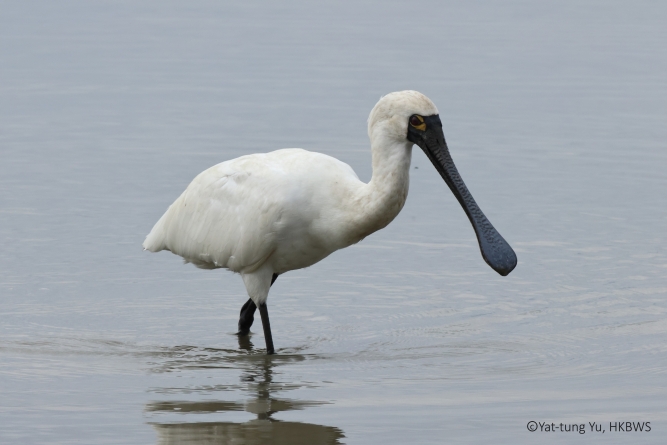
Black-faced Spoonbill Downgraded to Vulnerable: A milestone and continued commitment
The Black-faced Spoonbill (Platalea minor), one of NEASPEC’s flagship species, has been downgraded from Endangered to Vulnerable on the IUCN Red List of Threatened Species, marking a major conservation milestone for North-East Asia and the broader East Asian–Australasian Flyway.
The review of the species’ global status has been underway since 2024, involving many experts and partners who sought a more accurate reflection of its population recovery. The result, now officially accepted, lists the species as Vulnerable (with the original proposal suggesting a further downlisting to Least Concern). The IUCN applied Criteria C and C2aii, relating to small population size and continuing decline in a single subpopulation, reflecting the species’ restricted breeding range in the Yellow Sea, where nearly all mature individuals are found.
Once facing extinction, the Black-faced Spoonbill has shown steady population growth thanks to long-term regional cooperation, effective wetland protection, and public awareness. This recovery demonstrates what sustained and collaborative conservation can achieve.
As a flagship species, the Black-faced Spoonbill has been at the center of NEASPEC’s regional cooperation efforts, including capacity-building, joint monitoring, and socio-economic and environmental analysis among its member States. Although this downlisting is a cause for celebration, the species’ survival remains highly dependent on continued conservation interventions.
To guide the next phase, the Working Group on the Black-faced Spoonbill, with NEASPEC’s support, is developing a new International Single Species Action Plan (ISSAP) 2026–2036. Authors and experts gathered together on 8-9 September 2025 at the NEASPEC secretariat to review the first draft revision. The revised ISSAP is expected to be published in 2026, outlining key actions, such as identifying critical breeding and staging sites, enhancing monitoring and data sharing, addressing climate and disease-related risks, and engaging local communities in stewardship.
The Black-faced Spoonbill’s recovery underscores the importance of healthy wetlands, international cooperation, and sustained action. NEASPEC congratulates all governments, partners, and communities involved in this achievement and reaffirms its commitment to ensuring that this success continues as a model for transboundary conservation in North-East Asia.
 Back to News
Back to News